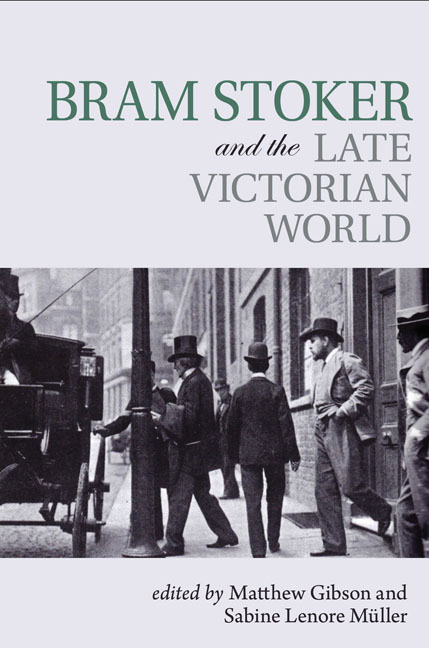Preface
Summary
The almost spectral image of the unsmiling Stoker, staring from the few old photographs which remain of him, are perhaps not quite as iconographic as the various film stills of the actors who played his most famous creation, Dracula, but in recent years they have become increasingly visible. Since Harry Ludlam wrote his first biography in the 1960s, and brought back to attention the initial novel that had spawned such a cultural phenomenon, further interest in the Gothic genre has propelled Dracula to the position of a classic, studied in many major English literature degree courses across the world. Likewise the rising interest in the Victorian theater, promoted by the likes of Jacky Bratton, has also led to an increased interest in Stoker's working milieu, the Victorian stage, in which he played a prominent if somewhat arduous role as Acting Manager to Henry Irving at the Lyceum. The success of recent bestselling biographies by the likes of Paul Murray (2004) and David Skal (2017), placing him firmly in the context of the Fin-de-Siècle and his Irish background, have demonstrated the growing fascination with the man and the rest of his world outside Dracula.
Interest in the fiction that he wrote besides Dracula has been steadily increasing over time. William Hughes's seminal Beyond Dracula (Palgrave, 2000), a work which opened up Stoker's other sixteen books to the general public, is perhaps the first tome of this kind, and was of immeasurable value in drawing attention to Stoker's other fictional works. Carol Senf 's first monograph on Stoker, Science and Social Science in Bram Stoker's Fiction (Greenwood, 2002), also went “beyond Dracula” in observing the effect of the contemporary episteme on Stoker’s work. Lisa Hopkins's study of 2007 also analyzed Stoker's wider fiction, although under particular themes rather than as a “text-bytext” analysis. In 2010 Carol Senf 's second monograph on Stoker, Bram Stoker (University of Wales Press), explored the larger contribution made by the author to developing the Gothic as a genre. Catherine Wynne has provided the only monograph to date that actually places Stoker’s fiction in the context of his life and experience as a theater manager in her book Bram Stoker, Dracula, and the Victorian Gothic Stage (Palgrave Macmillan, 2013).
- Type
- Chapter
- Information
- Bram Stoker and the Late Victorian World , pp. 1 - 6Publisher: Liverpool University PressPrint publication year: 2019

